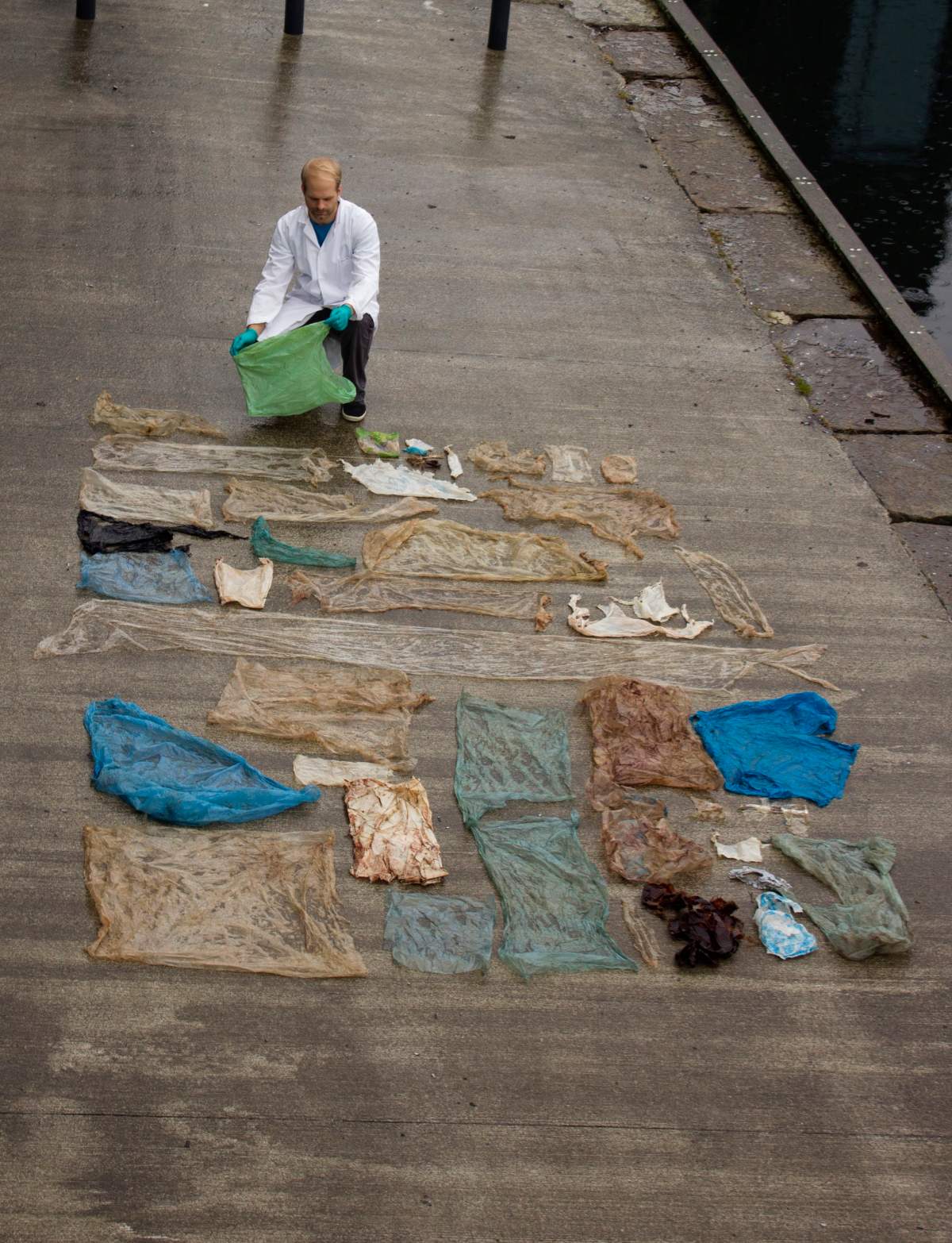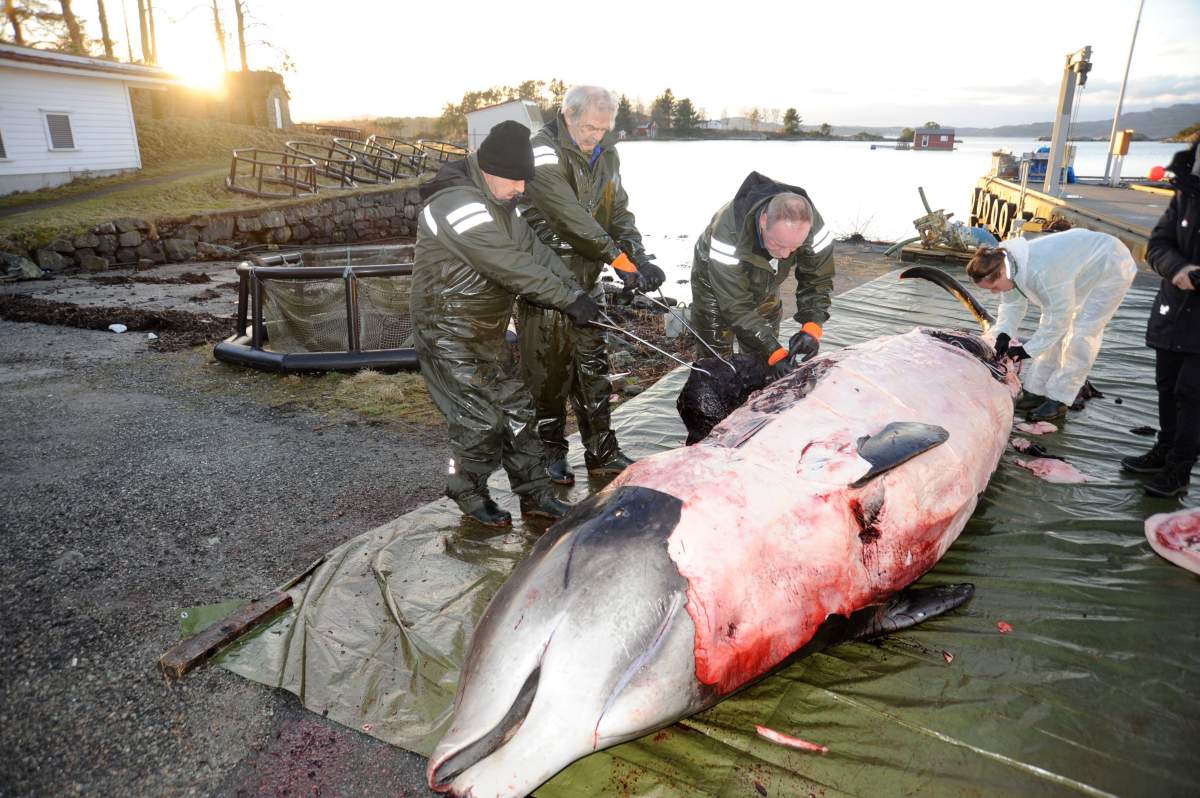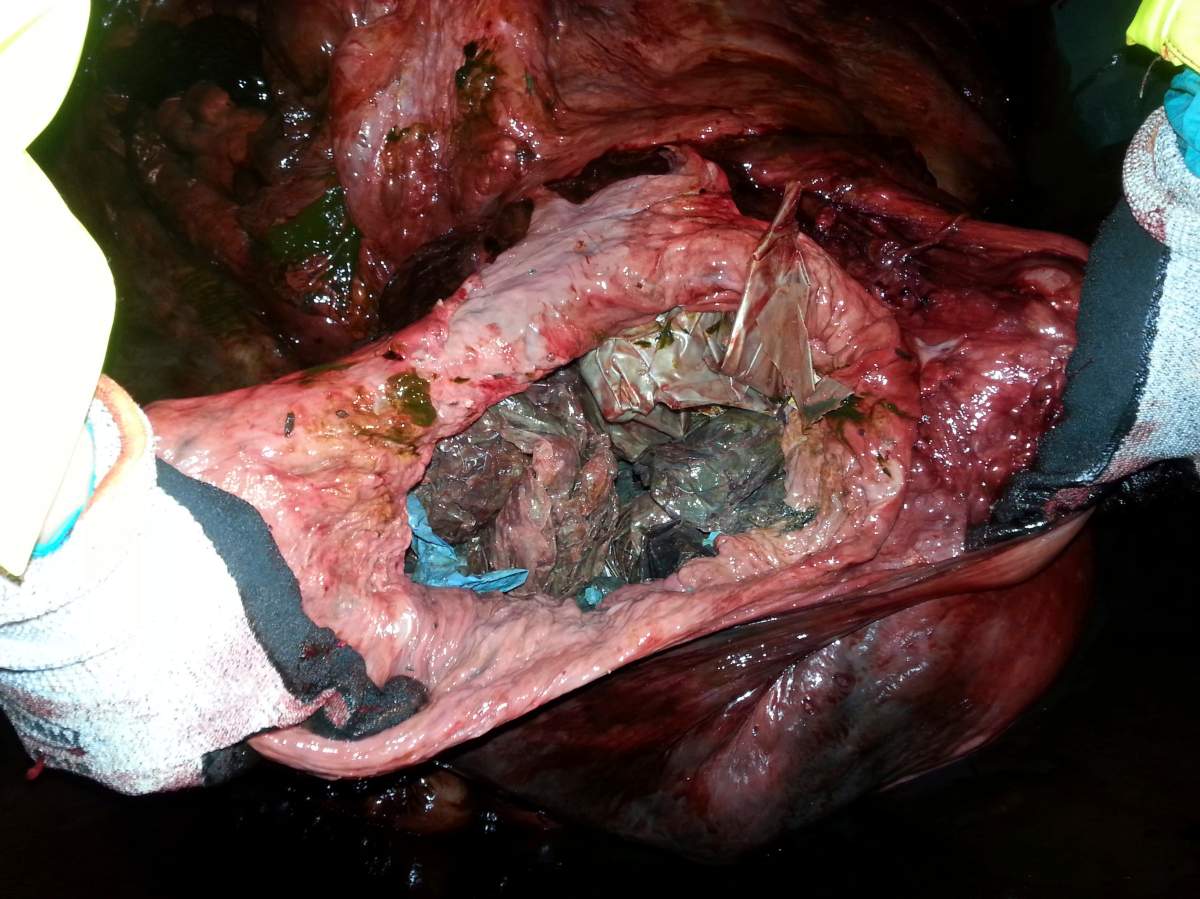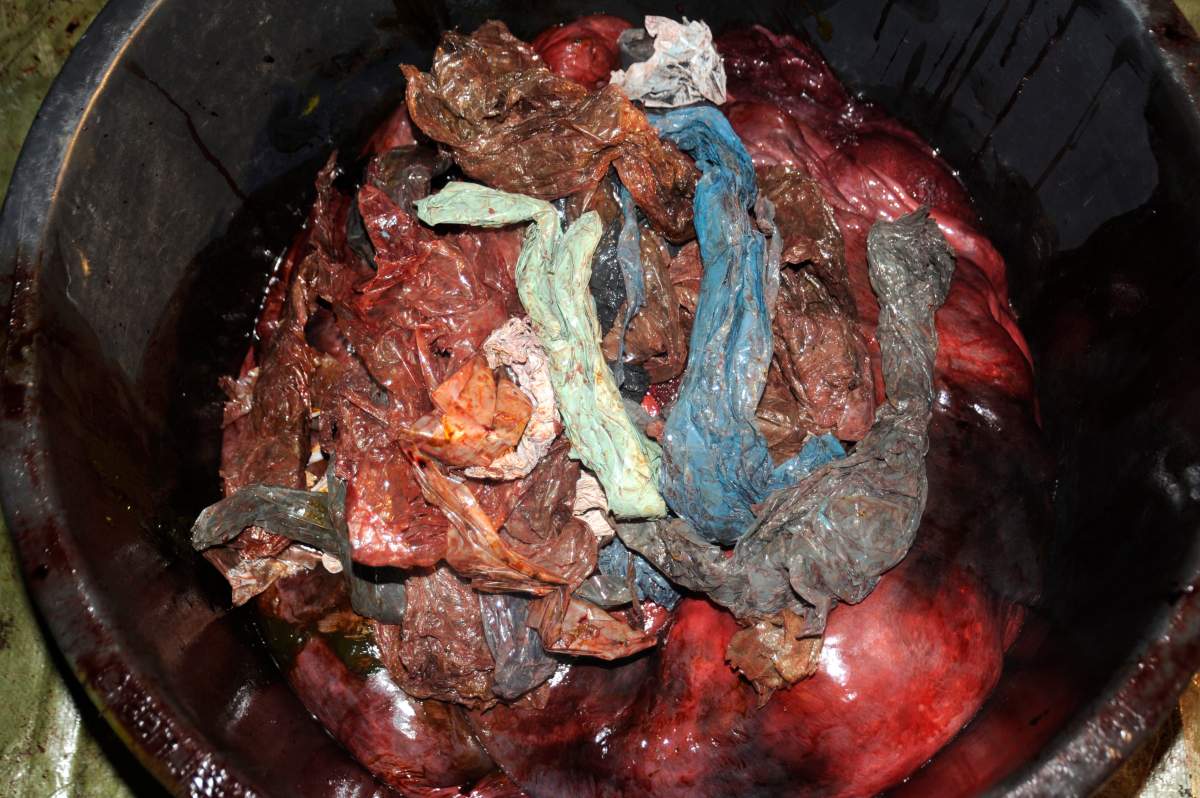An autopsy carried out on Thursday on a beached whale, which was found on the island of Sotra near Bergen last weekend, showed it had 30 plastic bags in its stomach as well as other plastic items.

The autopsy also showed that its intestinal system was completely emptied of food and all indications pointed it had been in pain.
READ MORE: Canadian artist creates mermaid from 10,000 plastic bottles to raise pollution awareness
Several attempts were made to chase the six-metre-long Cuvier’s beaked whale back into the sea on Jan. 29, but eventually the whale had to be shot and it was later taken away to be examined.
“Here we have laid out the content. In volume, if you press all of it together, it all fitted in this box. But in total there’s around 30 different plastic bags as well as some flakes of plastic here, which is what the whale has eaten,” said zoologist Terje Lislevand.
READ MORE: Reports says plastic in ocean could outweigh fish by 2050

Get daily National news
He said the longest of the plastic bits had been more than two-metres long.
“I think the whale has been in pain. I don’t think it’s been comfortable to have this in the stomach. I think that what lays here is the explanation of why the animal acted so strange and stranded on Sotra this weekend,” Lislevand said.
The whale’s intestinal system was devoid of food, Norwegian media said.
WARNING: Some of the following images are graphic. Discretion is advised.
Lislevand said there were plastic bags from several countries in the whale’s stomach and called plastic waste in the oceans a “huge” international problem.
Experts have sounded the alarm over how plastic pollution kills huge numbers of seabirds and marine mammals and destroys ocean ecosystems.
Some plastic objects like discarded fishing nets, kill by entangling dolphins, sea turtles and other animals. Pieces of plastic frequently get stuck in the throats and digestive tracts of marine animals.









Comments
Want to discuss? Please read our Commenting Policy first.